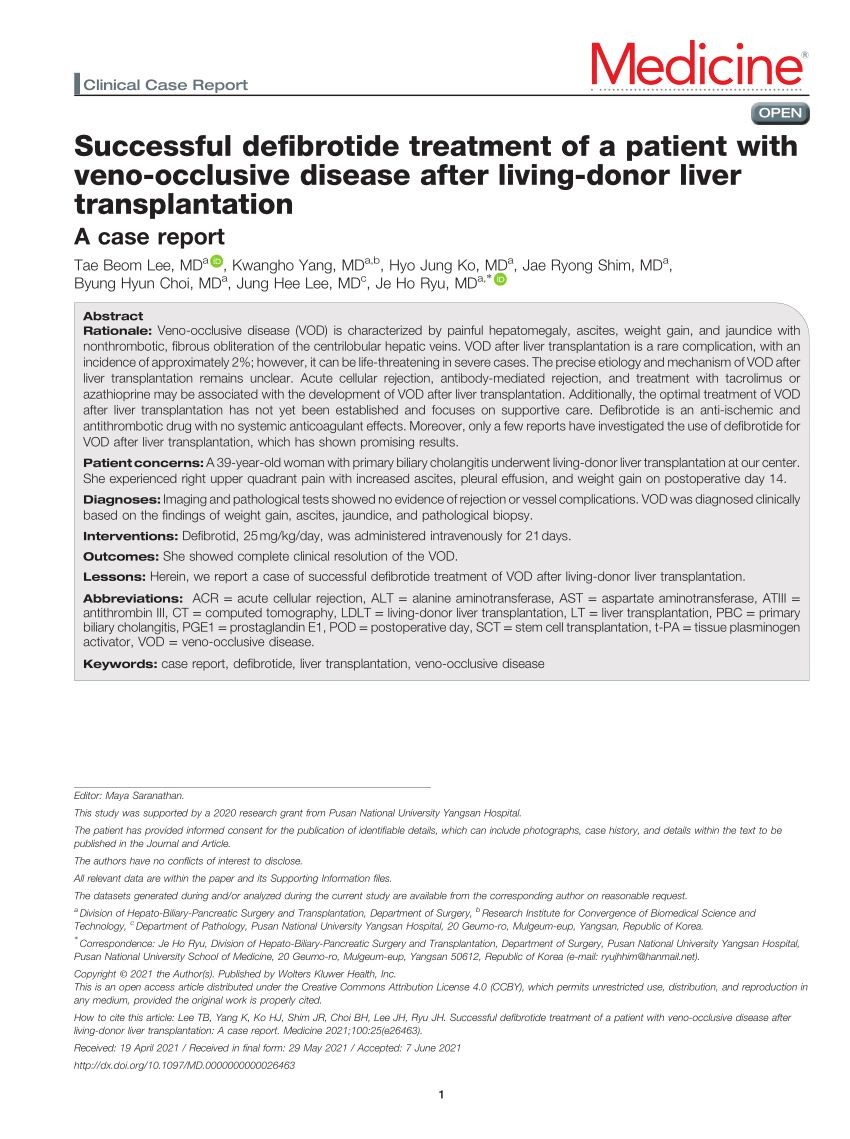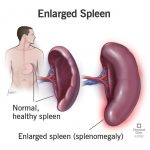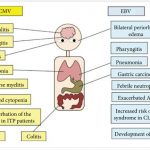
Contents
defibrotide
Defibrotide is a medication used to treat hepatic veno-occlusive disease (VOD), also known as sinusoidal obstruction syndrome (SOS). It damages the endothelium of small blood vessels in the liver, causing blood clots, impaired blood flow, and liver damage. Defibrotide treats adults and pediatric patients with SOS and kidney and liver dysfunction following hematopoietic stem cell transplantation (HSCT), a major cause of SOS.
Defibrotide enhances the activity of plasmin, an enzyme that breaks down proteins in the blood, including fibrin that forms clots. Lab studies show that defibrotide increases the activity of tissue plasminogen activator (t-PA), the enzyme that converts plasminogen into plasmin, and thrombomodulin, a molecule that inhibits clot formation. Defibrotide also reduces the coagulating activity of von Willebrand factor (vWF) and plasminogen activator inhibitor-1 (PAI-1) that inhibits t-PA.
In lab studies, defibrotide protected endothelial cells (EC) from injury, reduced EC-activated inflammatory and blood clot forming activity, and increased EC-mediated fibrinolysis. Defibrotide protects liver endothelial cells from damage due to chemotherapy, tumor necrosis factor-alpha (TNF-A), serum starvation, and perfusion. Defibrotide is infused intravenously over two hours.
Warnings
- Do not administer defibrotide to patients with known hypersensitivity to any of its components.
- Avoid concurrent use with systemic anticoagulant or fibrinolytic treatment, except for routine maintenance and reopening of central venous lines, as it increases bleeding risk.
- Defibrotide increases the activity of fibrinolytic enzymes and can increase the risk of bleeding.
- Avoid administration to patients with active bleeding.
- Monitor patients for hypersensitivity reactions, especially those who have had previous exposure to defibrotide.
- Discontinue defibrotide if the patient develops severe hypersensitivity reactions and provide appropriate treatment until symptoms resolve.
Side Effects
Common side effects of defibrotide include low blood pressure (hypotension), diarrhea, nausea, vomiting, nasal bleeding (epistaxis), pulmonary alveolar hemorrhage, pulmonary hemorrhage, gastrointestinal hemorrhage, intracranial hemorrhage, cerebral hemorrhage, sepsis, graft-versus-host disease (GVHD), lung infiltration, pneumonia, infection, and hyperuricemia.
Call your doctor immediately if you experience:
- Serious heart symptoms like fast or pounding heartbeats, fluttering in your chest, shortness of breath, and sudden dizziness;
- Severe headache, confusion, slurred speech, severe weakness, vomiting, loss of coordination, feeling unsteady;
- Severe nervous system reaction with very stiff muscles, high fever, sweating, confusion, fast or uneven heartbeats, tremors, and feeling like you might pass out; or
- Serious eye symptoms like blurred vision, tunnel vision, eye pain or swelling, or seeing halos around lights.
This is not a complete list of side effects. Call your doctor for medical advice about serious side effects or adverse reactions. Report side effects or health problems to the FDA at 1-800-FDA-1088.
Dosages
Intravenous (IV) solution:
- 200 mg/2.5 mL (80 mg/mL) vial
Adult and Pediatric:
Hepatic Veno-Occlusive Disease
- Indicated for adults and children with SOS and renal or pulmonary dysfunction following HSCT
- 6.25 mg/kg IV once every 6 hours infused over 2 hours
- Administer for a minimum of 21 days; if after 21 days signs and symptoms of SOS have not resolved, continue defibrotide until SOS resolution or up to a maximum of 60 days
Dosage Modifications
- Severe or life-threatening anaphylaxis: Discontinue permanently; do not resume treatment
- Persistent, severe, or potentially life-threatening bleeding:
- Withhold defibrotide
- Treat the cause of bleeding and provide supportive care as clinically indicated
- Consider resuming treatment at the same dose and infusion volume when bleeding has stopped and the patient is hemodynamically stable
- Discontinue permanently; do not resume treatment
- No known reversal agent for the profibrinolytic effects of defibrotide
- Discontinue infusion at least 2 hours prior to an invasive procedure
- Resume treatment after the procedure, once any procedure-related risk of bleeding is resolved
Dosing Considerations
- Dose is based on weight prior to preparative regimen for HSCT
Overdose
- No known reports of defibrotide overdose or specific antidote. Overdose may be treated with symptomatic and supportive care.
Drug Interactions
Inform your doctor of all medications you are currently taking to check for possible drug interactions. Do not begin, discontinue, or change the dosage of any medication without your doctor’s recommendation.
- Severe interactions of defibrotide with:
- alteplase
- apixaban
- argatroban
- bivalirudin
- dabigatran
- dalteparin
- desirudin
- edoxaban
- enoxaparin
- fondaparinux
- heparin
- reteplase
- rivaroxaban
- enecteplase
- vorapaxar
- warfarin
The list above does not include all possible interactions. Visit the RxList Drug Interaction Checker for more information.
Always inform your doctor, pharmacist, or healthcare provider of all prescription and over-the-counter medications you use, including the dosage for each. Keep a list of this information. Contact your doctor or healthcare provider if you have any questions about the medication.
By clicking Submit, I agree to the MedicineNet’s Terms & Conditions & Privacy Policy and understand that I may opt out of MedicineNet’s subscriptions at any time.
Pregnancy and Breastfeeding
- No data on the safety of defibrotide use in pregnant women. Animal studies indicate defibrotide can cause miscarriage if administered during pregnancy.
- No information on defibrotide presence in breastmilk or its effects on milk production and the breastfed infant. Do not breastfeed during treatment with defibrotide due to potential serious adverse reactions in the breastfed infant, including bleeding.
Additional Information
- Report to your treating physician immediately if you experience symptoms of hemorrhage, such as easy bruising, unusual bleeding, blood in urine or stool, confusion, headache, altered vision, slurred speech, rash, hives, swelling of face and throat, breathing difficulty, or swallowing difficulty.
From
Healthy Resources
Featured Centers
- What Are the Best PsA Treatments for You?
- Understanding Biologics
- 10 Things People With Depression Wish You Knew
Summary
Defibrotide is used to treat hepatic veno-occlusive disease (VOD), also known as sinusoidal obstruction syndrome (SOS). It damages the endothelium of small blood vessels in the liver, causing blood clots, impaired blood flow, and liver damage. Common side effects include low blood pressure, diarrhea, nausea, vomiting, nasal bleeding, pulmonary hemorrhage, gastrointestinal hemorrhage, intracranial hemorrhage, cerebral hemorrhage, sepsis, and others.
Defibrotide is used to treat hepatic veno-occlusive disease (VOD), also known as sinusoidal obstruction syndrome (SOS). It damages the endothelium of small blood vessels in the liver, causing blood clots, impaired blood flow, and liver damage. Common side effects include low blood pressure, diarrhea, nausea, vomiting, nasal bleeding, pulmonary hemorrhage, gastrointestinal hemorrhage, intracranial hemorrhage, cerebral hemorrhage, sepsis, and others.


